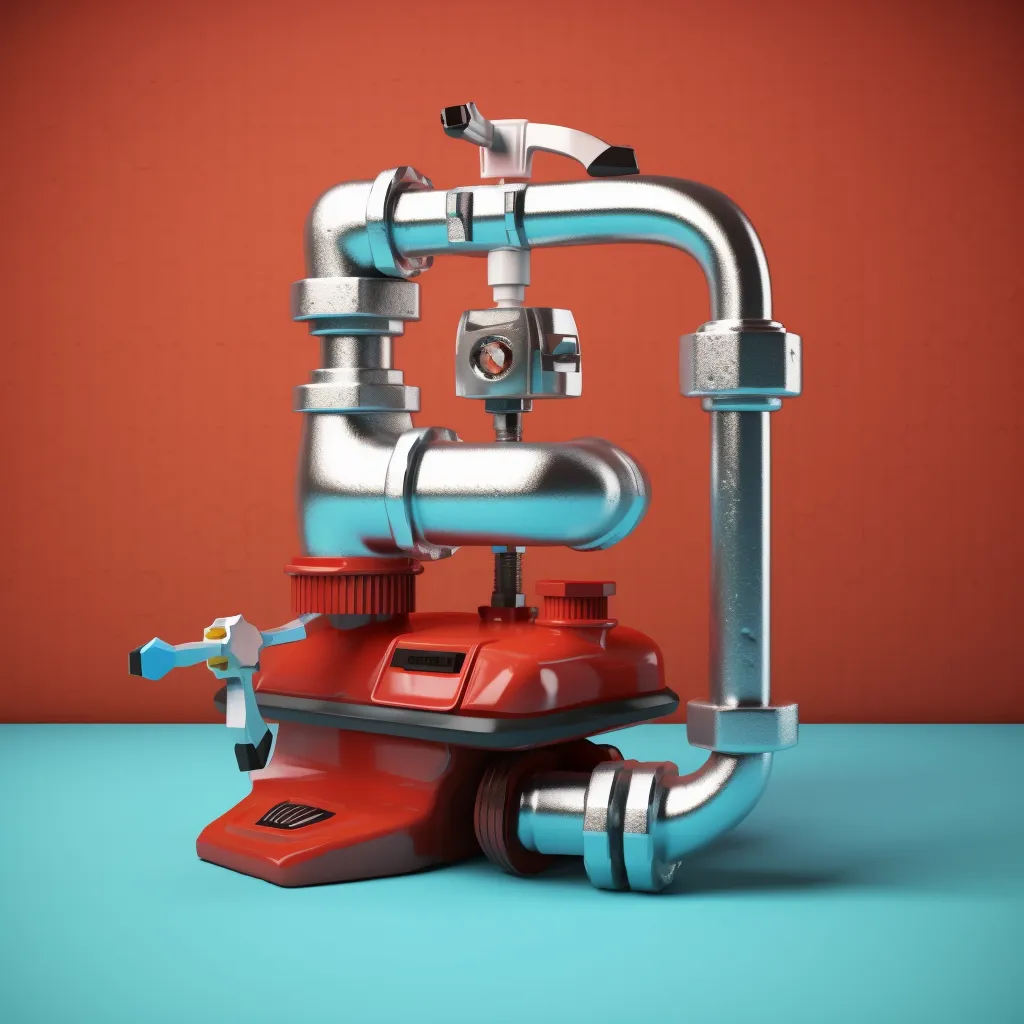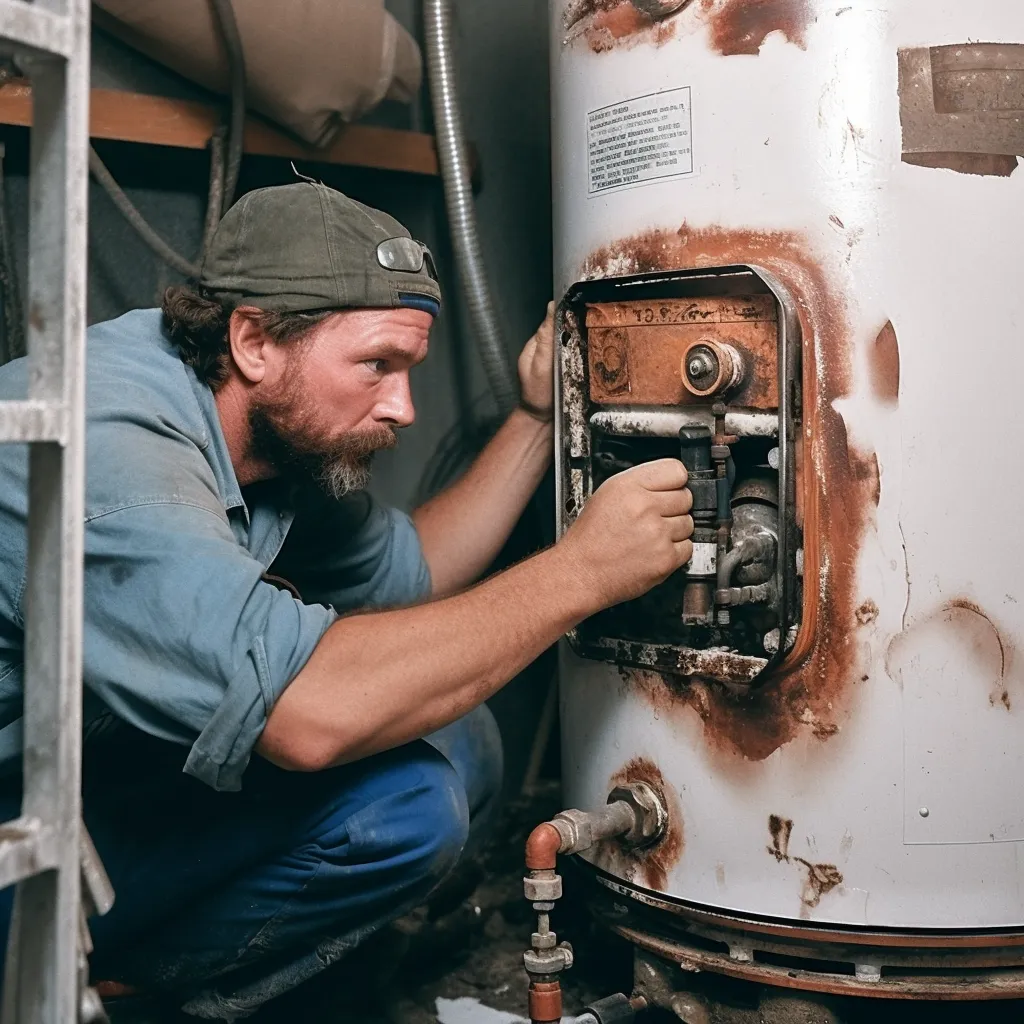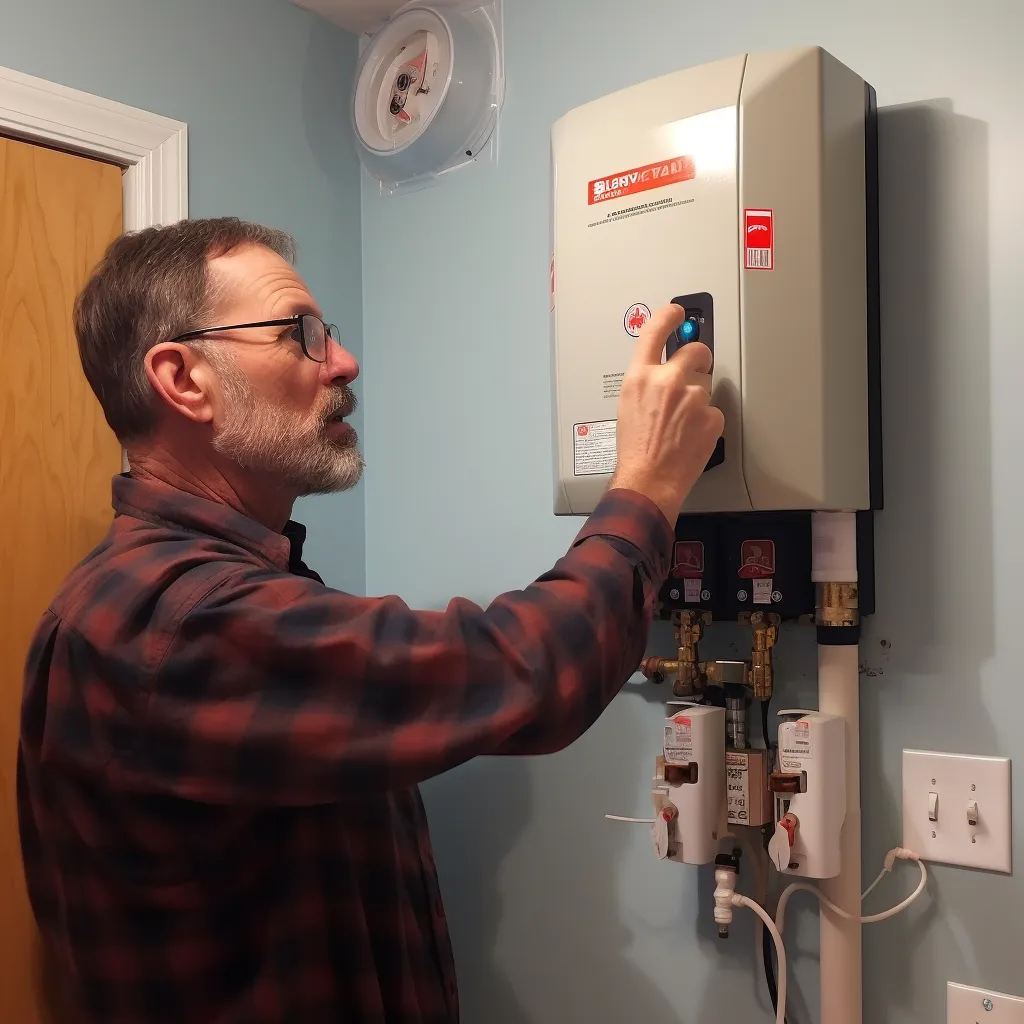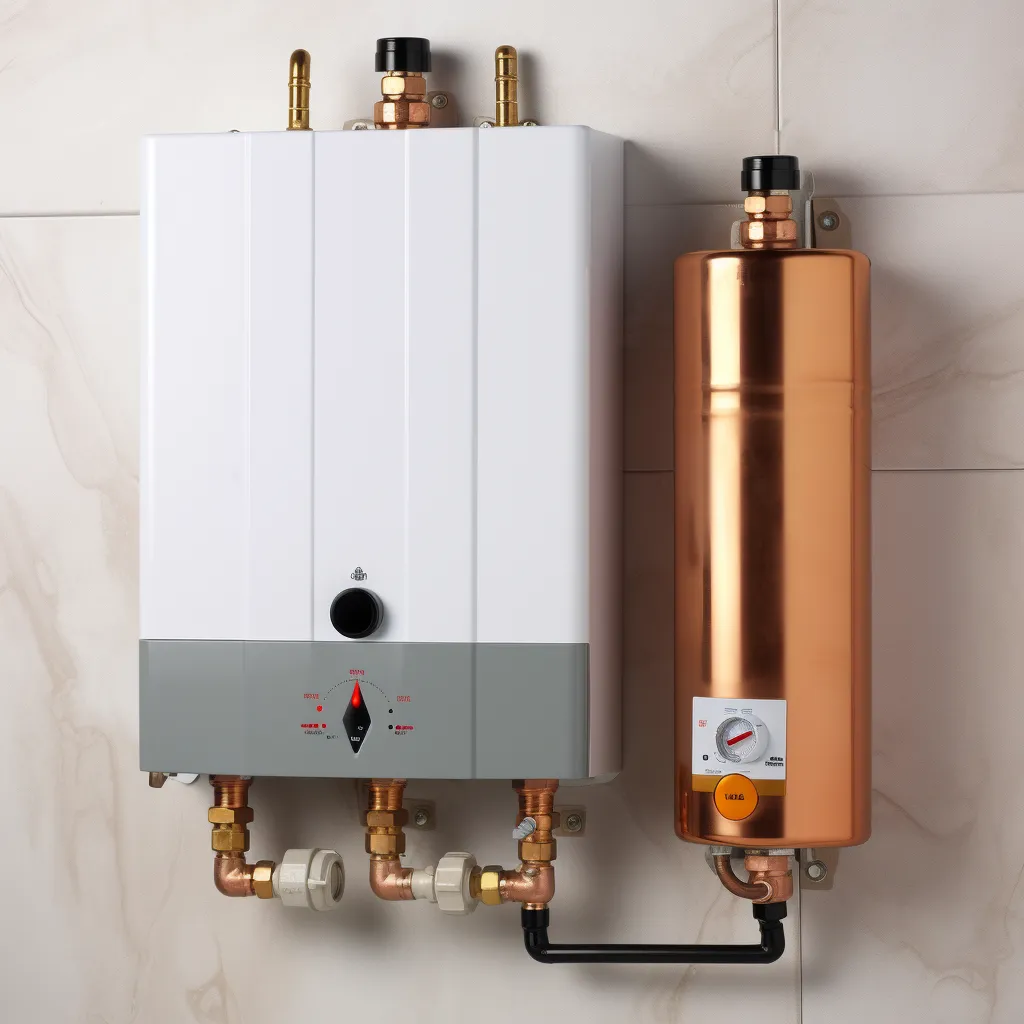How Often Do You Need
to Replace a Water Heater?
Don't wait until you're taking a chilly shower to realize the value of water heater maintenance! Addressing needs early on will avoid headache and potentially risky situations. In this guide, we'll go over signs that may signify a replacement is required, as well as important considerations when selecting a new system. Keep reading for tips on guaranteeing your family a steady, dependable stream of hot water.

How long do water heaters last?
Never run out of hot water with a reliable hot water heater! Although, just like any other appliance in your home, these units have a limited lifespan, which depends on various factors. The average lifespan of a hot water heater is between 8 to 12 years, but factors such as these can impact its expected longevity:
Did you know that tankless water heaters typically have a longer lifespan than traditional models?
Improper installation or maintenance can dramatically decrease its longevity.
Regular maintenance and inspections are vital to ensure your water heater operates efficiently and lasts long-term.
Keep in mind that heavy daily use and hard water can also speed up wear and tear, ultimately affecting the unit's effectiveness.


Analyze your budget for a new hot water heater
Choosing the perfect water heater for your home and pocket can be tricky with the plethora of options out there. To make a wise decision, you need to focus on your budget and household requirements, like energy efficiency, size, and compatibility with your lifestyle. Although some models may cost more upfront, they will help you save big bucks in energy bills in the long haul. So, remember that investing in a high-quality water heater is a smart move that will pay off in the future. Take your time and weigh your options before making a final call.

Replacing a water heater is a significant decision
A new water heater is a big investment. To make the right choice, consider factors such as efficiency, cost and age. If your current unit is over 10 years old or constantly breaking down, it's time to explore upgrade options. Do your research and consult with professionals to evaluate the best plan for your unique needs. Enjoy energy savings and lower utility bills with a new and efficient water heater.

How to extend the lifespan
of your water heater
Don't neglect your water heater. Extend its lifespan with these tips to optimize performance.

Regular Maintenance: Keep your heater in top shape by flushing it regularly to remove sediment and reduce corrosion.
Install a Filter: Improve water quality and prevent debris from clogging your pipes with a water filter.
Tank Insulation: Keep hot water from losing heat and save energy by insulating your hot water storage tanks.
Pressure Check: Avoid dangerous pressure buildup by regularly examining your temperature and pressure relief valve.
Rod Inspection: Protect against corrosion by inspecting and replacing your anode rod regularly.
Timer Installation: Save money and give your heater a break by installing a timer.
Lower Temperature: Increase efficiency and reduce wear-and-tear by lowering the temperature setting.
Extend the life of your water heater with simple maintenance. Regularly inspect and flush to eliminate sediment, reduce corrosion, and keep repair and energy costs low.

Make sure to address
any malfunctions
Keep your water heater in good shape by addressing any malfunctions right away. One of the signs of a problem is not enough hot water production, usually caused by a broken heating element or related components. Unusual sounds coming from the heater can also mean there's sediment or mechanical build-up. When you notice these warning signs, call a specialist to diagnose and repair the issue. Don't wait! Timely repairs can extend the life of your heater and save you money in the long run.
Signs it's time to get a new water heater
Is your water heater acting up? As with any mechanical device, wear and tear is inevitable. To avoid costly repairs or a complete breakdown, watch out for these telltale signs that it's time to invest in a replacement:

Age: If it's older than 10 years, it may need to be replaced.
Noises: Popping or gurgling sounds could mean it's time for a new tank.
Leaks: If you see water around the base, there might be a leak that needs fixing.
Hot Water Outages: Frequent outages could mean it's time for a replacement.
High Energy Bills: A faulty water heater could lead to higher bills, so keep an eye out for sudden spikes.
Frequent Repairs: If you're constantly repairing your water heater, it may be time for an upgrade.
Corrosion or Rust: Rusting or corroded areas around the unit might indicate it's time to replace it.
Strange Taste or Smell: Off-tasting or smelling water might indicate that the unit isn't functioning correctly.
Insufficient Hot Water: If you're not getting enough hot water, it's time to consider a replacement.

Don't ignore warning signs! They could cause serious damage to your home and even put your health at risk. To tackle the issue and prevent further problems, consult with a professional right away.
What does it cost to replace
a water heater?
Curious about the cost of replacing your water heater? Several factors affect the final price. Let's explore them:

From standard electric models to tankless systems, the type of water heater you choose will affect its replacement cost.
Bigger units come at a higher cost- so choose wisely!
Installation can get pricey if the work required is complex.
Don't wait too long to replace your water heater! It's a big investment, with electric heaters ranging from $500 to $2,500 to replace and tankless repairs setting you back $1,000 to $3,500. But, splurging on a high-quality unit will pay off in the long run with lower bills and higher energy efficiency. Avoid costly home damage by getting a replacement now.
Common frequently asked questions about replacing and installing a water heater
Discover the answers to your burning questions about water heater replacement and installation. Navigate the process with ease by checking out our top FAQs.
What size of water heater is required?
How long should you expect the installation to take?
Which fuel source should you consider for your water heater?
What is the estimated cost for the installation?
Is professional installation assistance necessary?
Find the perfect water heater for your home with expert help from licensed plumbers. They'll consider your personal needs and offer recommendations on the correct size and type. Plus, get an estimate of installation costs and any extra work needed. Don't risk making the wrong choice – consult with the pros.
How to save money
when replacing a hot water heater
Affordable hot water heater replacement is possible with these money-saving tips while ensuring a steady supply of hot water for your home:

Finding the right water heater for your home can be confusing. Start by researching options to see which will suit your needs best, whether standard electric models or tankless systems.
Don't forget about energy efficiency! An energy-efficient model saves you money in the long run by consuming less energy, ultimately lowering your monthly utility bills.
Before purchasing, shop around to compare prices from different retailers and suppliers.
Look for state rebates and incentives for energy-efficient water heaters to maximize your savings.
Investing in a tankless water heater may cost more initially, but the energy savings over time can be significant.
To ensure installation is done safely and correctly, hire a trained professional. Don't take risks with a DIY installation.

Why you should hire a professional
vs DIY installation
of a water heater
Don't be deceived by the idea that replacing your old hot water heater is a simple DIY project. While it might appear to be a good way to save money, it could become a complicated task quickly. Installing a hot water heater requires specific skills and knowledge that only experts possess. By hiring a professional, you can be confident that the installation will be done correctly, meet code requirements, and come with a guarantee. Attempting to do it yourself might seem like a money-saving approach, but it could result in costly mistakes and unexpected expenses. Before trying to replace your hot water heater, think twice and consider professional installation services.

Tips on finding a water heater professional for installation
When you're looking for a licensed plumber for water heater installation, remember these important things:

Do your research: Quality work is key. Search for reviews, testimonials, and recommendations online or from people you know.
Check credentials: Make sure the expert you hire has the proper licenses, insurance, and qualifications.
Feedback: Look for feedback from previous customers to confirm the expert's quality of work and reliability.
Get estimates: Compare deals by obtaining detailed estimates from several professionals.
Hire a qualified professional: Though cost may be a factor, it's crucial to choose an expert with the right certifications and qualifications for safe and effective installation.
Ready to Solve Your Plumbing Needs?
For reliable, expert plumbing services tailored to the needs of Lake Worth and its neighboring cities, look no further than D&S Plumbing Inc. We’re here for you 24/7, ensuring that your plumbing is always in top condition.
Call us today to schedule your service!
Business Hours: Monday - Sunday, 24 Hours
Phone Number: (561) 823-2535
Location: Central Lake Worth, FL, serving all surrounding areas.
Trust your local experts at D&S Plumbing Inc. for professional, timely, and efficient plumbing solutions.
GET IN FULL TOUCH
PHONE: (561) 823-2535
EMAIL:
david@waterheaterlakeworth.com
D&S Plumbing Inc
Lake Worth, FL 33462
